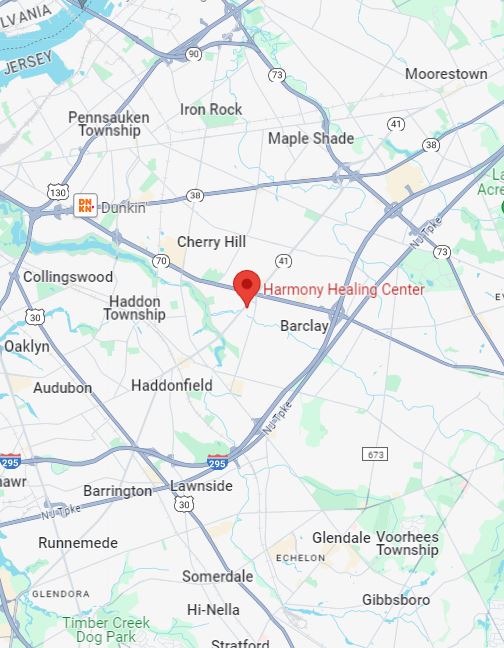The opioid epidemic has had a devastating impact on the residents of New Jersey. An estimated 3,021 individuals lost their lives to an opioid-suspected overdose in 2019 in the state of NJ alone. The effects of this public health concern can be felt across the country, which showcases the importance of having heroin treatment programs accessible to everyone in need.
What Is Heroin Use Disorder? Understanding It and Comprehensive Overview
Heroin dependency falls within the diagnosis of an opioid use disorder (OUD). Heroin addiction is marked by a combination of behavioral and physical symptoms, and the severity is determined by the number of symptoms that an individual experiences. Symptoms associated with opioid use disorder provided by the American Society of Addiction Medicine include:
- Experiencing cravings
- Developing a tolerance or needing more to experience the same effects
- Withdrawal symptoms
- Taking opioids in a larger amount or for a longer period than originally intended
- Wanting to reduce or stop the use of opioids but being unable to do so
- Spending a significant amount of time thinking about the next use, procuring opioids, using opioids, and recovering from their effects.
- Continued use of opioids despite the negative effect it has had on other areas of the person’s life
- Missing or reducing the number of work, social, or recreational activities that they previously engaged in
- Using in physically hazardous situations
Who Is Horizon BCBS Insurance Provider?
Horizon Blue Cross Blue Shield has been providing New Jersey residents with support for their health since its development in 1932. In its original form, Horizon provided pre-paid hospital health services for those in need. BCBS is proud of its ability to transform over time into the top-tier health insurance provider we are familiar with today.
As a leading healthcare provider nationwide, BCBS provides products and services for individuals, families, and businesses. The range of plans and coverage options ensures that there is a plan that can support your medical needs and reduce financial barriers to mental health and substance abuse treatment.
Information about the Horizon Blue Cross Blue Shield Brands and Services in NJ
To meet the needs of New Jersey residents, Horizon Blue Cross Blue Shield has a selection of services and plans that policyholders can choose from. Members can choose their plan while being mindful of their healthcare needs and a manageable price point within their budget. Plans and services that are available with Horizon BCBS include:
- Horizon Blue Cross Blue Shield of New Jersey: The most common Horizon brand that provides comprehensive coverage for individuals, families, and businesses.
- Horizon Behavioral Health: Allows members to access coverage to access mental health services such as therapy and counseling.
- Horizon Blue Cross Blue Shield Omnia Plans: A tiered approach that allows members to choose a plan based on its price point and available coverage options.
- Horizon Blue Cross Blue Shield Federal Employee Program (FEP): Provides healthcare coverage for federal employees, retirees, and their families who reside in New Jersey
- Horizon MyWay: A plan option that allows members to choose their healthcare plan while being mindful of their medical and mental health needs.
- Horizon Blue Cross Blue Shield Medicare Plans: Medicare Advantage and Medicare plans are available for seniors and qualifying individuals.
- Horizon Direct Access: This healthcare plan allows members to choose in-network and out-of-network treatment providers without obtaining necessary referrals.
- Horizon Blue Cross Blue Shield Basic and Essential Plans: Provides healthcare coverage for essential services while at affordable rates.
- Horizon Vision: Meets policyholder’s vision needs, including eye exams, glasses, and contact lenses.
- Horizon Pharmacy: This service allows members to access a network of pharmacies, in addition to providing prescription drug coverage.
- Horizon Blue Cross Blue Shield Foundation of New Jersey: A philanthropic effort of Horizon BCBS that offers services to qualifying individuals experiencing health disparities within New Jersey.

What Does Horizon Blue Cross Blue Shield (BCBS) of New Jersey Cover for Heroin Treatment?
Your Blue Cross Blue Shield heroin rehab coverage may provide inpatient and outpatient care coverage. There are notable differences among the healthcare plans provided by BCBS, which can directly impact the rehabilitation centers it works with and the premiums and deductibles you are responsible for paying.
One key focus for Horizon BCBS is to provide policyholders with comprehensive coverage that allows them to access treatment for medical, mental health, and other behavioral health concerns. We understand that navigating and understanding your healthcare plan can be confusing. If you are ready to begin your treatment journey, we encourage you to contact the Harmony Healing Drug and Alcohol Addiction Treatment Center to begin verifying your insurance.
Does Horizon Blue Cross Blue Shield of New Jersey Cover Heroin Rehab?
Horizon Blue Cross Blue Shield heroin rehab centers provide varying levels of programming to meet the needs of community members. BCBS typically provides members with coverage for medical detoxification, inpatient rehab programming, and outpatient treatment options. Your plan may require that you obtain prior authorization before beginning treatment.
Keeping in line with its comprehensive care options, BCBS members may have coverage for specialized and alternative treatment options that can support them in their heroin addiction recovery. This can include dual-diagnosis care, medical treatment for heroin-related health concerns, and other holistic approaches to substance use disorder treatment.
Does Horizon Blue Cross Blue Shield of NJ Cover Heroin Detox?
Heroin detoxification is often a necessary step for those who are experiencing heroin withdrawal symptoms. This process is often challenging and overwhelming, which is why detox programs are strongly recommended. You may experience flu-like symptoms, nausea, vomiting, diarrhea, insomnia or fatigue, intense cravings, and restless leg syndrome. You can also experience mood changes, including depression, anxiety, and irritability.
The symptoms that you experience and their intensity can vary from others, and even from previous times, you have stopped using heroin. Medication-assisted treatment (MAT) for heroin withdrawal can provide you with some reprieve from your discomfort, making the process of withdrawal a bit more manageable. During heroin withdrawal, it is important to monitor for signs of dehydration for individuals who experience a combination of vomiting and diarrhea, as this could cause health complications.
Does Horizon Blue Cross Blue Shield (BCBS) of New Jersey Cover Heroin Abuse Counseling?
Heroin treatment centers that accept Blue Cross Blue Shield can use various approaches for heroin counseling. Individual counseling can be used to understand the root of your heroin addiction and to explore how you can cope with or manage the driving force of your use. You can also use this space to explore topics that you wish to keep private.
Group therapy is often a place where you can find validation and support for your thoughts, emotions, and experiences from others who can relate to your experiences with a substance use disorder. Group sessions may include heroin relapse prevention education, dual-diagnosis care, and function as a support group for heroin addicts. Specialized treatment options are often available for individuals with shared characteristics or experiences, such as substance use disorders in adolescents, trauma survivors, Veterans, and First Responders. The Harmony Healing alcohol and drug addiction treatment center is here to support you in your recovery journey, no matter where you are in it. Call (888) 409-5356 to begin our admissions process today.
Please complete the confidential information. Someone from our team will follow up with you to check your Horizon BCBS insurance.
Other New Jersey (NJ) Heroin Addiction Treatment Programs Covered by Horizon BCBS
As with other mental health concerns, your ideal program is determined mostly by the symptoms that you are experiencing, their severity, and the impact that they have on your daily functioning. Being educated about your different treatment options allows you to make an educated and informed decision about which program would best suit your current needs.

Heroin Treatment and Addiction Partial Hospitalization Programs (PHP)
Heroin partial hospitalization programs (PHP) offer comprehensive care for individuals who require an intensive treatment approach that uses various intervention strategies, including medical support and counseling services. With a focus on personalized care, a PHP is a great stepping stone for those transitioning to an outpatient care program and those who need more support than an Intensive Outpatient Program (IOP).
Since Blue Cross Blue Shield covers heroin rehab, we can see why some may wonder if a PHP falls within this scope. Providing coverage for PHPs is frequently done by Horizon BCBS. Contact Harmony Healing Substance Addiction Treatment Center today to learn about insurance-covered care options.
Heroin Treatment and Addiction Intensive Outpatient Program (IOP)
Intensive outpatient programs begin with a comprehensive assessment that explores different areas of your life that were impacted by your addiction. This allows your care providers to utilize holistic approaches to substance use disorder treatment that are tailored to your life. IOPs are a short-term option that provides three to four hours of intensive care three to five days a week.
Horizon BCBS typically provides coverage for IOP for policyholders. IOPs can provide you with invaluable treatment that can have a lasting impact on your recovery. This includes medication-assisted treatment, dual-diagnosis care, and specialized treatment programming. If you are unsure about your coverage options, we encourage you to verify your insurance to learn of any exclusions that may apply.

Heroin Treatment and Addiction Residential Rehab Programs
Residential rehab programs provide care for individuals who are unable to refrain from substance use in their home environment. This can include individuals who are at a high risk of experiencing an overdose and those who use it in hazardous situations. Rehab programs often combine group therapy, individual therapy, and educational wellness sessions into their structured program.
Horizon Blue Cross Blue Shield heroin rehab centers may provide residential rehab treatment. BCBS recognizes that for addiction treatment programs to be effective, they need to reflect the individual’s needs at that time. Residential rehab programs can provide a safe landing place as you get accustomed to the changes in early recovery. For some, this can include developing a realistic relapse prevention plan that lists the behaviors and supports you can rely on during those challenging moments.

New Jersey (NJ) Heroin Rehab Centers That Take Horizon Blue Cross Blue Shield (BCBS)
The Harmony Healing Addiction Treatment Center in Cherry Hill, NJ, can provide a personalized program that can energize your recovery and boost your support when needed. With various outpatient care programs, we provide a continuum of care for members of our community who are working to improve their quality of life.
Harmony Health Center – Cherry Hill, New Jersey
401 Kings Highway South
Building #1 Tara Corporate Park
Cherry Hill, NJ 08034
How Much Does Heroin Rehab Cost in New Jersey Without Horizon Blue Cross Blue Shield (BCBS) Insurance?
The National Center for Drug Abuse Statistics has ranked New Jersey as the 15th most affordable state for substance use disorder treatment. On average, New Jersey residents pay among the different levels of care available, the duration of your care, and the use of specialized treatment programs.
Outpatient rehab programming may cost NJ residents around $1,701 for each treatment episode. Individuals who are taking advantage of medication-assisted treatment and dual-diagnosis care options may find that the cost of their care is higher than the average. For questions about how much you would pay for addiction treatment, we encourage you to contact the Harmony Healing Addiction Treatment Center in New Jersey.

How To Check My Horizon Blue Cross Blue Shield Insurance in New Jersey Coverage Levels for Heroin Use Rehab
The Harmony Healing Center can help make verifying your insurance hassle-free! By making this process easier for you, we believe you will have more energy to devote to your recovery and taking care of yourself. Our admissions counselors can take you through the admission process step by step, providing insight and support when needed.
If you have access to your healthcare plan documents, you may be able to find details about your drug rehab coverage with your behavioral health coverage details. You may find a detailed account of your deductible, copayment, and other financial responsibilities. Additionally, you can learn about the claims process and whether your plan requires prior authorization. If you still have questions, you may contact Horizon BCBS directly by utilizing their patient portal or calling the phone number on the back of your insurance card.
How To Get Horizon Blue Cross Blue Shield (BCBS) To Pay For Heroin Rehab or Addiction Treatment in New Jersey
When the Harmony Health Center verifies your insurance, we are also checking to see if your plan requires prior authorization or other steps to be completed before claims can be processed. This information allows us to guide you if there are any steps that you need to complete before your admission.
Once we have a prior authorization, we will bill your insurance company directly as you participate in your treatment program. Our staff will also monitor any authorization renewals that may come after some time set by BCBS. We know the processes BCBS has established for their plan holders and are confident we can help you transition into treatment smoothly.
Heroin Addiction Statistics and Misuse in New Jersey (NJ)
Sought-After Cities to Visit in and Around New Jersey (NJ)
Substance Misuse and Statistics in New Jersey (NJ)
Contact Harmony Healing Center
Get personalized help from an empathetic professional.

